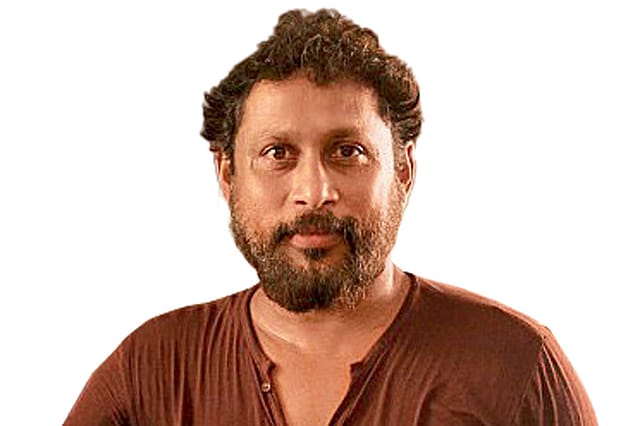Suffering and Shoojit Sircar

Movies about mortality are difficult to pull off. But Shoojit Sircar knows how to balance humour and tragedy. Nowhere was this as well crafted as in Piku (2015) where Amitabh Bachchan played a potty-obsessed father who went on a road trip to Kolkata with his long suffering daughter (Deepika Padukone) and a handyman-cum-driver-cum-transporter, memorably played by the late Irrfan Khan. Irrfan was a close friend of Sircar and clearly his passing has affected him deeply. Sircar's new film, I Want to Talk, is based on the true story of Arjun Sen, a marketing executive based in California. Arjun was given 100 days to live because of his cancer but proceeded to have 21 surgeries and live for far longer, over 10,000 days. The film takes place mostly in and out of hospitals, with Abhishek Bachchan, who plays Arjun, spending most of his time under the knife for some organ removal. Bachchan lets go of his hair, his weight, his vanity and immerses himself in the role of Arjun Sen. There is much comic relief in Johny Lever's role as a handyman and in Jayant Kripalani as Arjun's doctor. Arjun's relationship with his daughter is key, even if it begins on a rough note. There are themes about pain (pain is a promise that life always keeps), about patients being like prisoners (they have numbers, not names; wear an IV like handcuffs; and have uniforms), and about the law of averages being mathematically incorrect (have you ever seen a family with 2.5 children?) Sircar's vision of life is clearly influenced by Ramakrishna Paramahansa (who incidentally, also had throat cancer and died of it), whose photo adorns Arjun Sen's home in the film. God is in all men, said Paramahansa, but all men are not in God, that it why we suffer, he said. Arjun Sen wouldn't agree more. He is a motivational speaker and management guru, and his mantra, unsurprisingly is, Unquit Forever. For a film on death, it is surprisingly upbeat.
Vir Das' Global Ambitions
In hosting the International Emmy Awards in New York, Vir Das has achieved yet another milestone. One of the most under-the-radar celebrities in the country, Das' comedic gigs have a devoted following. And his acting gigs justify his training in the Stanislavsky School's method. He isn't too popular with the establishment because of his habit of speaking out, as he did at the Kennedy Centre, US, in a standup monologue. He has had four special shows on Netflix, acted in a few series in the US, such as ABC's Whiskey Cavalier, and established himself as a comedic star. It was in Call Me Bae! on Prime Video that he gave full vent to his comic skills, intimidating the lead actor Ananya Panday and doing an excellent impersonation of a permanently enraged TV anchor. Should the Indian film and streaming industry not use him more before he gets snapped up abroad?
Openomics 2026: Continuity and Conviction
06 Feb 2026 - Vol 04 | Issue 57
The performance state at its peak
Amaran and After
Often, it takes one movie or series to transform an actor into a star. These last months have seen many such examples. Vikrant Massey, for so long the hero's best friend or the star heroine's neglected lover, got much deserved wide acclaim for his role as an underprivileged IAS aspirant in Vidhu Vinod Chopra's 12th Fail. Aditi Rao Hydari, an actor who debuted in Delhi 6 in 2009 in an aunty kind of role, found long overdue stardom with Sanjay Leela Bhansali's Heeramandi on Netflix. Sharvari made her debut in Kabir Khan's The Forgotten Army in 2020 but it is only now that she has been noticed with the success of Munjya. Sivakarthikeyan is enjoying such a moment with the Tamil blockbuster Amaran adapted from India's Most Fearless: True Stories of Modern Military Heroes by Rahul Singh and Shiv Aroor. Based on the life and sacrifice of Major Mukund Varadarajan, who died fighting terrorism in KashmirAmaran has made `317 crore worldwide, becoming the tenth highest grossing Tamil movie of all time. Produced by Kamal Haasan, the film is directed by Rajkumar Periasamy. As is now quite common in movies, the cast comes from different film industries, including Rahul Bose and Bhuvan Arora from Hindi cinema. The Tamil industry is teeming with male stars, with the two biggest now in their seventies. The second generation is ageing too, with the latest releases from Chiyaan Vikram and Suriya, Thangalaan and Kanguva, respectively, doing underwhelming business. Time for a new generation of stars to rise, right? And time for female stars such as Sai Pallavi, who plays the major's wife in the film, to do more.
